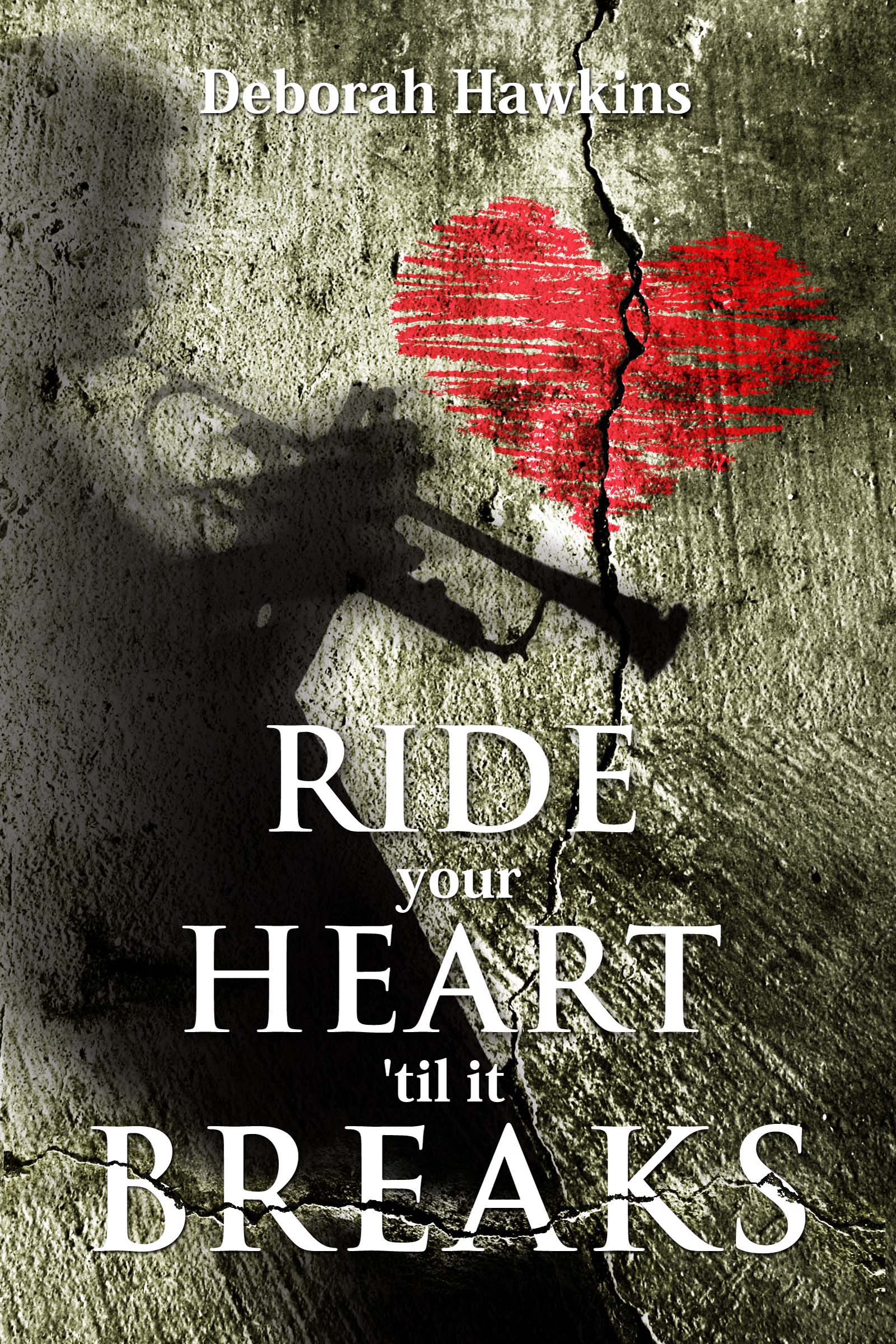CHAPTER FOUR
A jail is nothing but gray, Sarah thought on Tuesday afternoon. She and Jim had been sitting in gray metal chairs at the gray metal table in the attorney-client interview room for a half hour without any sign of Alexa Reed. Sarah looked around to keep from being mesmerized by Jim’s gentle eyes, studying her from his seat at the end of the table. He looked good in a suit. She’d never seen him in one before. Feelings would complicate things; she couldn’t have feelings. But his eyes tempted her to have them. She needed a night with David and soon to make her forget about Jim. Hadn’t he said his wife was in Cabo this week? She’d call him after work, and see if he was free that evening.
She took in the dust-gray walls, the gray chairs and the table where they were seated, the gray door they had come through and the metal bars over the peek-hole window. A guard in a gun-metal gray uniform peering at them through the large glass security window directly in front of her completed the set. Sarah hadn’t been in a jail in a long time. Her clients were all wealthy business executives who bypassed lockup with millions of dollars worth of bail.
“I think she’s standing us up,” Jim said.
“Maybe. Trevor said she’s been curled up in a fetal position and hasn’t spoken since the preliminary hearing.”
“So she’s incompetent to stand trial.”
“I’d say yes for sure, but there’s a hearing September 3 to make that determination. I’m going to interview the psychologist who’s evaluating her as soon as I can get an appointment.”
“You’ll want me there in case he lies on the stand at the hearing.”
Despite her best judgment, Sarah’s eyes darted to his and remained fixed on their brown depths longer than she’d intended. “Yes, I will. Definitely.”
The gray metal entrance door began to slide to the right, extremely slowly, creaking as it moved. She and Jim turned toward it, thinking Alexa was about to appear. Instead, they saw only a portly fortiesh woman guard with a sour look on her face.
“Are you Sarah Knight?” she demanded. “Where’s you bar card?”
Sarah tried to stifle her annoyance, knowing a rise from her was what this nameless jail official wanted; but she’d shown her state bar identification card more times in the last half-hour than she had ever displayed it in her entire career. She was tired of dragging it out of her wallet.
But she did, and the guard scanned it for several minutes as if she thought it was counterfeit.
“And you? “ she demanded of Jim. “Where’s yours?”
Without a word, he patiently handed over both his California bar card which showed he was on inactive status as a lawyer, and his private investigator’s license. Sarah noticed he fumbled with his ex-FBI agent’s association id card for the grumpy guard’s benefit.
“You used to be an agent?”
“Yeah.”
“Then why are you working for defense lawyer scum?”
“Have to make a living.” Jim gave her a half-smile and put his credentials away.
“Well, bad news. Your client won’t get up to talk to you. She’s lying on her bunk, eyes open, saying nothing.”
“And this has gone on for some time?”
“Since they brought her back from the prelim on June 17. Somehow she eats enough to stay alive. But that’s it.”
“I’d like to go down to her cell and introduce myself,” Sarah said. “She’s never met me.”
“It’s against jail policy.”
“I can get a court order if you’d rather.”
The guard frowned at them both, delaying the moment when she’d have to admit defeat.
“You don’t have to. I’ll escort you down there.”
The interior corridors were even grayer, Sarah reflected a few minutes later as she and Jim followed the woman to Alexa’s cell. They twisted and turned through narrow hallways with the astringent smell of lemony disinfectant until they reached the tiny space Alexa Reed occupied.
Their sour guide dialed a combination lock on the door of the cell, and then used a key to complete opening it. Sarah and Jim stepped inside when it swung open, but there was barely room for both in the tiny dark space lit only by a three by three window high up on the outside wall.
She was a tiny bag of bones, Sarah reflected as she looked down at the woman in the navy blue prison scrubs curled up on the single cot. Her blonde hair was matted and uncombed, and apparently unwashed for weeks. Her large light blue eyes stared straight ahead, unfocused and distant. She was about five feet tall, Sarah guessed, and must have weighed all of ninety pounds.
She knelt by the cot. “Alexa, I’m Sarah Knight, your new attorney. And this is my investigator, Jim Mitchell. We’ve come to hear your side of things. Will you go down to the interview room with us where we can talk?”
No response. Alexa’s blue eyes remained blank and fixed on the opposite wall.
Jim leaned over and took one of Alexa’s small hands in his much larger one. Sarah couldn’t explain why she didn’t like that. She thought she saw a flicker in Alexa’s otherwise vacant blue eyes when Jim took her hand, but it might have been her imagination.
“She isn’t going to talk to you,” the hostile guard announced. “You’re going to have to leave.”
Jim let go of Alexa’s tiny fingers and stood up. He really did look good in a suit, Sarah thought once more, and then wondered why she was thinking about Jim’s looks and Alexa’s hand in his.
Sarah stood also and turned toward the door. Suddenly, on impulse, she paused and fished one of her business cards out of her brief case. She pressed it into Alexa’s unresponsive hands.
“Here’s my card, Alexa. We’re here to help you.”
* * *
That night, Sarah found herself standing in front of Jim’s olive green bungalow at seven thirty. He’d insisted on making dinner again to give them a chance to talk over the day’s events. She had called David as soon as she’d gotten back to her office, ready to cancel the evening with Jim if he was free. But his wife had unexpectedly backed down from her Cabo trip, so seeing him was out of the question. Had Tessa guessed about their relationship? That possibility nagged at Sarah as she thought of calling Jim to set up a meeting at a restaurant where she would feel more in control. But the need for confidentiality trumped her scruples about being alone with him.
He put a glass of cabernet in her hand and motioned for her to take a seat on one of the tall stools around the island in his kitchen.
“I was in the mood for burgers, although not the ones you burn over a gas grill. Feeling the French bistro vibe tonight, so I’ve made grilled onion confit and Bearnaise sauce and shoestring sweet potato fries.”
“I’ll have to work out tomorrow for sure.”
He turned from stirring the onions and gave her a once over. “I doubt that. You look very Audrey Hepburn tonight in those black skinny pants and black shirt with your hair cut short like hers. Do people ever tell you that you look like her?”
“Once in a while. When they don’t otherwise know my ‘day job.’”
“I have to admit you had me fooled that night at Trend.”
Was it really less than a week since they’d met, Sarah reflected. Why did she feel as if she’d always known him?
“That was tough today at the jail,” Jim observed, turning back to his onions.
“Yes, it was.” Sarah paused to take a long drink of her wine, wondering if she should have asked for scotch instead.
“She’s barely alive.”
“Trevor Martin warned me, but it was much worse than I’d pictured.”
“She’ll be declared incompetent to stand trial. She’s completely incapable of assisting with her defense.”
“Yeah, that’s blatantly obvious. Still, I want to interview Percy Andrews to find out what he’s going to say at that competency hearing. I’ve got an appointment with him on Friday at 9 in the morning.”
“I’ll be there with bells on.”
* * *
They ate in Jim’s small dinning room at a small antique maple table. He dialed the lights down, and lit candles in clear glass holders. Sarah wondered if he considered the evening a business or personal occasion.
“How long have you been in San Diego?” He asked as he put the plates on the table and motioned for her to take the seat opposite his.
“Since January. What about you?”
“Two years, now. It’s easier being on the opposite coast.” His eyes darkened as he spoke, but he gave her that gentle, honest smile that she found hard to resist. “Do you miss New York?”
“Sometimes.”
“Why didn’t you go with a big firm here like Warwick, Thompson?”
“I thought about it. I talked to Alan Warwick. In the end, I was tired of working for someone else.”
Jim smiled. “I can understand that. Any broken hearts left behind in New York?”
“Only the ones I mentioned the other night, the dry cleaning delivery boy and the Chinese food messenger. But I doubt they miss anything but the tips. I was always generous. What about you?” Why was she picturing him holding Alexa Reed’s tiny fingers?
“I’ve tried. No luck. Still head over heels for Gail.”
Jealousy was an inappropriate emotion Alexa reminded herself as he refilled her wine glass. “What is she like?”
“Funny, smart, beautiful. Taffy hair, big blue eyes. Knockout figure. Grew up in Boston. She teaches third grade and loves it. Cody has a half-sister, Brittany, whom he adores.”
Sarah studied him across the table. A white knit shirt tonight with navy linen pants. Such a kind, gentle face. Hard to believe he hadn’t found someone else by now.
“Penny for your thoughts.”
“My hourly rate is a lot higher than that.”
“Guess I can’t afford them, then.”
“I thought you were a trust fund baby.”
He laughed. “I tend to forget about the old man’s money. I did without it all those years. Ok, I’ll pay your hourly rate if you tell me why you’re looking at me like that.”
“Like what?”
“As if you were reading my mind.”
“Now that would be a useful skill for a defense attorney. But I don’t do mind reading. I was just thinking a guy like you should have hooked up with someone by now.”
“I could say the same about you.” The tone of his voice made her tummy flutter, and she decided this conversation had to end and quickly.
“I do see someone. From time to time.”
Did he look disappointed? She wasn’t sure.
“Lucky him. What’s he like?”
“A busy important, CEO of a commercial real estate firm. His brother, who works for him, had a minor problem with the Securities and Exchange Commission last winter, just after I got here.”
“And you took care of it for him?”
“Made it all go away.”
Jim studied her in the candlelight. “There’s something you’re not telling me.”
Sara traced the circle of the bottom of her wine glass. “Now you’re reading minds.”
“I’ve interviewed hundreds of witnesses. I know when someone’s holding back.”
Her dark eyes met his, and she smiled. “You’re really good. I’ll give you credit. David Scott is very married.”
“Ah, I see.” He crossed his knife and fork on his plate in a gesture of finality before bringing his eyes back to study hers. “Then why waste your time?”
“He’s witty, well educated, and charming.” And I can’t fall in love with him. But Sarah would never say that out loud.
“Does the wife know?”
She frowned as she thought of the defunct Cabo trip. “I don’t think so.”
“But you’re not sure.”
“She was supposed to be in Cabo tonight.”
“And he was supposed to be with you?”
“But she cancelled. I don’t think it had anything to do with me and David.”
“Well, my luck that she stayed in town.” He leaned over and started to refill her glass, but she put her hand over the top.
“I’m driving, remember?”
“And I’ve got that guest room, remember? This was a tough day. You need it. Let me put the plates in the sink and then join you in the living room. I’ve learned a lot about Alexa Reed since this afternoon. I think you’re going to be interested in what I’ve found out.”

Read Full Post »


























